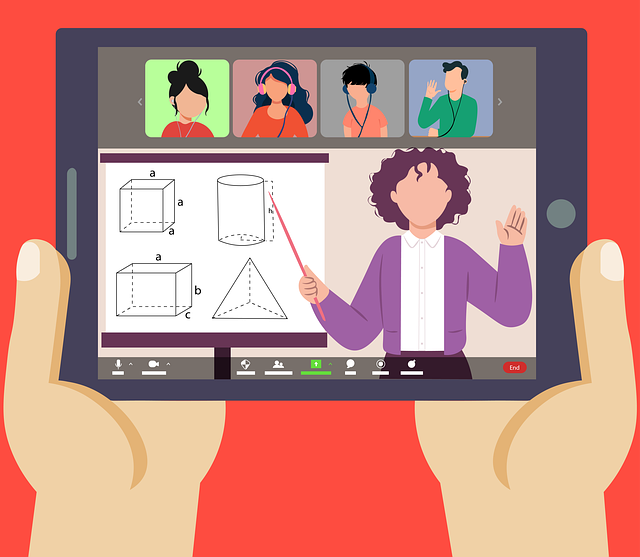Remote patient care, powered by technology like high-speed internet and smart devices, brings medical services home through digital tools for diagnosis, treatment, and monitoring. Semaglutide online consultation is a prime example, where patients with diabetes connect virtually to healthcare professionals via video conferencing or secure messaging platforms. This approach benefits chronic disease management by improving patient compliance, reducing costs, and enhancing accessibility, especially in remote areas or for individuals with limited mobility. It allows personalized medical advice from home, eliminating geographical barriers. Virtual care, including semaglutide online consultations, transforms patient management, improves health outcomes, and enhances quality of life by increasing accessibility, reducing travel time and costs, boosting patient engagement, and fostering trust through robust data encryption and ethical standards. These platforms enable remote tracking of vital signs and medication adherence, offering timely interventions for proactive health management. Comprehensive remote care services like semaglutide online consultation have the potential to revolutionize healthcare, proving particularly effective during global health challenges requiring physical distancing.
In today’s digital era, comprehensive remote patient care services are revolutionizing healthcare accessibility. This modern approach, ‘Understanding Remote Patient Care’, focuses on managing various conditions effectively through semaglutide online consultations and virtual care. By leveraging digital tools for monitoring and follow-ups, patients with chronic diseases benefit from enhanced convenience and improved outcomes. Additionally, building trust and ensuring privacy in telemedicine services are paramount, addressing potential concerns for widespread adoption. Explore these aspects and more in our comprehensive guide.
Understanding Remote Patient Care: A Modern Approach to Healthcare

Remote patient care, also known as telecare or telemedicine, is a modern approach to healthcare that leverages technology to deliver medical services remotely. It involves using digital tools for diagnosis, treatment, and monitoring, enabling patients to access healthcare from the comfort of their homes. This innovative model has gained significant traction in recent years, especially with advancements in communication technologies, such as high-speed internet and smart devices.
One notable example of remote patient care is the use of semaglutide online consultation. Semaglutide, a medication commonly prescribed for diabetes management, can now be administered through virtual consultations, where patients connect with healthcare professionals via video conferencing or secure messaging platforms. This allows for continuous monitoring of patient health markers and adjustments to treatment plans without the need for in-person visits. Such developments are particularly beneficial for chronic disease management, as they improve patient compliance, reduce healthcare costs, and enhance accessibility, especially for individuals living in remote areas or with limited mobility.
The Role of Semaglutide in Diabetes Management and Online Consultations

Benefits of Virtual Care for Patients with Chronic Conditions

Virtual care has revolutionized patient management, especially for individuals with chronic conditions. Through remote patient care services, patients can access medical advice, monitor their health, and receive treatment from the comfort of their homes. This is particularly beneficial for those managing complex chronic illnesses like type 2 diabetes, where regular monitoring and medication adjustments are crucial. For instance, a semaglutide online consultation allows patients to discuss dosage, side effects, and personalized treatment plans with healthcare professionals virtually, eliminating the need for frequent in-person visits.
The advantages of virtual care include improved accessibility, reduced travel time and costs, increased patient engagement, and better adherence to treatment plans. Patients with chronic conditions often face challenges in maintaining regular clinic visits due to physical limitations, transportation issues, or work commitments. Virtual care overcomes these barriers, ensuring consistent management and timely interventions, ultimately leading to improved health outcomes and a higher quality of life for patients.
Building Trust and Ensuring Privacy in Telemedicine Services

Building trust and safeguarding privacy are paramount in the realm of telemedicine, especially when offering services like semaglutide online consultation. As patients share sensitive health information remotely, ensuring secure digital connections is crucial. Healthcare providers must implement robust data encryption protocols to protect patient records from unauthorized access, adhering to strict privacy regulations such as HIPAA (Health Insurance Portability and Accountability Act).
Trust is fostered through transparent communication, clear consent processes, and consistent adherence to ethical standards. Patients should be educated about the security measures in place, empowering them to feel confident sharing their health data. A reputable healthcare platform, designed with user privacy at its core, can facilitate secure video consultations, secure file sharing, and encrypted messaging, thereby enhancing patient satisfaction and encouraging the adoption of remote care services like semaglutide online consultation.
Integrating Digital Tools for Efficient Remote Monitoring and Follow-ups

In the realm of remote patient care, integrating digital tools has revolutionized how healthcare professionals monitor and follow up with patients, especially in managing chronic conditions like diabetes. Semaglutide online consultation platforms, for instance, enable efficient remote monitoring, where patients can receive personalized care from the comfort of their homes. Through these platforms, healthcare providers can remotely track vital signs, review patient adherence to medication regimens, and offer timely interventions or adjustments to treatment plans.
This digital approach streamlines the patient-provider connection, ensuring continuous care even between in-person visits. For instance, patients on semaglutide therapy for diabetes can have their glucose levels monitored remotely, allowing healthcare teams to promptly address any deviations and make necessary adjustments to medication dosages or dietary recommendations. Such integration not only enhances convenience but also improves patient outcomes by enabling proactive management of health conditions.
Case Studies: Successful Implementation of Comprehensive Remote Patient Care

The successful implementation of comprehensive remote patient care services has been demonstrated through various case studies, showcasing their potential to transform healthcare delivery. One notable example involves the use of semaglutide online consultation platforms for chronic condition management. Patients with type 2 diabetes, for instance, have benefited from virtual check-ins and personalized treatment plans, leading to improved glycemic control and better overall health outcomes.
These case studies highlight several key advantages, including increased patient engagement, reduced healthcare costs, and improved access to specialized care. By leveraging technology for remote monitoring and semaglutide online consultation, healthcare providers can offer more convenient and effective care, especially in light of the ongoing global health challenges that necessitate physical distancing measures.
